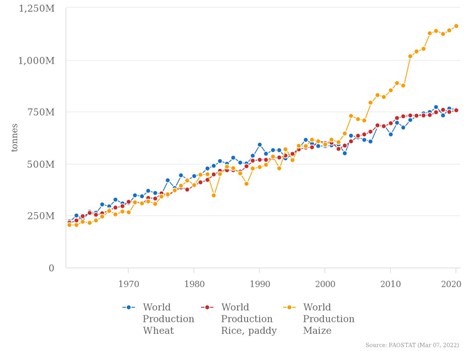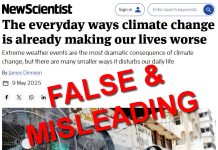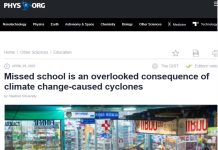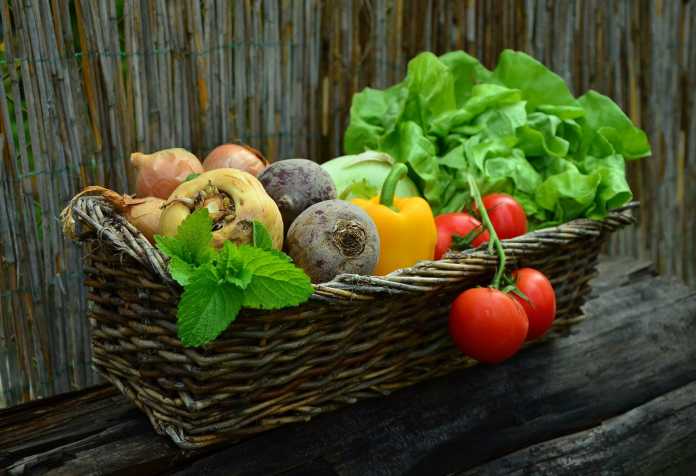A Time Magazine article ascribes the potential for a major food crisis to two sources: the war in Ukraine and climate change. Concerning the latter claim, Time is simply wrong. While the war in Ukraine and sanctions on Russian exports have had an impact on food prices, there is no evidence climate warming has or will harm food production worldwide.
The Time piece, titled “The Food Crisis Can’t Handle Ukraine War and Climate Change,” says the current high grocery prices are merely a sample of an even worse crisis to come.
“As temperatures rise due to increasing greenhouse-gas emissions, so too will the price of food,” says Time. The article also asserts that the past century’s warming was bad for food production and another degree or two of warming would be catastrophic.
Data from the U.N. Food and Agriculture Organization (FAO) refutes Time’s unsourced assertion climate change has hampered food production. In fact, as discussed in more than 120 Climate Realism articles, FAO data consistently show crop production has dramatically increased during the recent period of modest warming.
Indeed, as described in Climate Realism here, here, and here, for example, crop production and yields have repeatedly set records both in individual countries and globally, over the past three decades of warming. As shown in the figure below, this is especially for the major cereal crops, wheat, corn, and rice, which are the backbone of the global food supply.

Although the author of the Time article quotes FAO representatives, she fails for follow the data. Had she done so, her research would have demonstrated that, despite occasional damaging events like infestations, weather disasters, and war, food production is at record highs across the board. Also, as agronomy and botany explain; with the spread of modern agricultural technologies to less developed countries, bioengineering of crops, carbon dioxide, and longer growing seasons, the best bet is that food production will continue to increase and hunger decline amid continued modest warming.



















